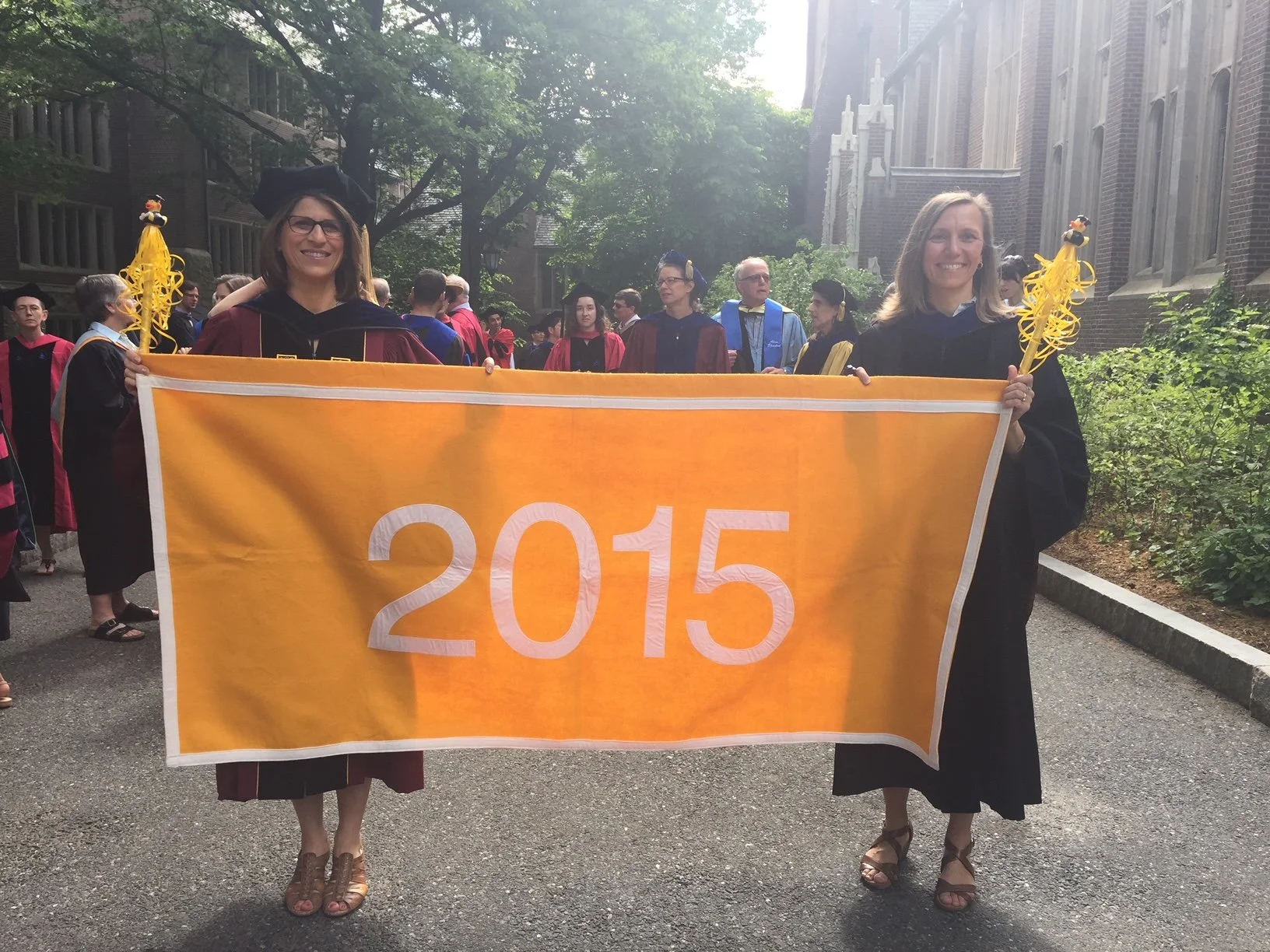Expert Insights
How to Transfer Colleges: A Step-by-Step Guide from a Transfer Admissions Insider
The decision to transfer isn’t always easy—but it can be a powerful step toward a more fulfilling college experience. It’s a brave, bold move toward finding a better fit. Transfer students often arrive at their new colleges with direction, commitment, and purpose. Whether you’re just starting to explore your options or already deep in the process, this guide offers step-by-step support to help you navigate the transfer process with clarity and confidence.
What to do When Your Child is Placed on Academic Probation or Facing Disciplinary Action: Advice From University Deans
We have 60 years of experience supporting college students to manage academic crises as deans at Harvard University, Wellesley College, and Tufts University. Beyond individualized student support, we run the academic review and standing processes at our institutions and help students facing disciplinary sanctions, so we know exactly how these processes work and how to navigate them best. If your student is facing an academic crisis or disruption to their education, we are the experts with the insider’s view you want in your corner.
100+ Tips to be Successful in College: Advice from Top University Deans
Our 75 years of collective experience supporting Harvard University, Tufts University, and Wellesley College students to reach their college goals has led to our framework for college success, which includes action items in the areas of wellness, academic success, know and use your resources, build your community, and create your future. Here, we share how to put this framework into action through a roadmap starting from the moment a student makes their college choice.
Best Colleges for Artificial Intelligence (AI) Majors
Artificial intelligence (AI) tools are being widely applied in nearly every aspect of our modern world. Yet, very few colleges and universities offer a formal AI major or degree. Indeed, according to the National Center for Education Statistics, only twelve US institutions currently offer a formal major in artificial intelligence. Learn about these programs and answers to some common questions about AI, including pathways to a career in AI.
What High School Classes Should I Take To Get Into The Best College?
A high school student's classes and grades are the foundation of their college application, regardless of the intended major. Admissions officers will not even review other parts of a student's application if the student does not have strong grades in a rigorous academic program. If you cannot take the highest level in all of the five core academic disciplines, you should lean into the areas related to your potential major.
What Classes Should You Take If You Are Applying For An Engineering or Computer Science Major In College?
A high school student’s classes and grades are the foundation of their college application, regardless of the intended major. No other application component will even be considered if a student does not have strong grades in a rigorous academic program. If you have to pick and choose where to extend yourself for rigor, CS- and engineering-interested students should lean into the STEM areas.
The Flawed Approach of Applying to Many Prestigious Colleges to Increase Your Chance of Acceptance (And What to do Instead)
Students and their parents often think that a student should apply to as many highly selective schools as possible to achieve their best admissions outcomes. In practice, we see the opposite to be true. Why is this the case? Why does a probabilistic approach fall short in college admissions?
The College Application Process: How to Apply to College (With Timeline)
At Lantern College Counseling, we have over 25 years of experience helping high school students apply to and transition to college and over 45 years of experience supporting and educating students on college campuses. We’ve leveraged our deep and extensive expertise to develop this comprehensive guide and task timeline for the college application process.
The College Application Process for Computer Science (CS) Majors
If you have questions about applying to college as a computer science (CS) major, you’ve come to the right place. I’m an engineer, a dean who oversees the CS curriculum in the School of Engineering at Tufts University, a former CS professor, and a college counselor specializing in STEM. I’ve synthesized over 30 years of experience supporting college students majoring in CS to create this complete guide to the college application process for computer science majors.
The College Application Process for Engineering Majors
If you have questions about applying to college for engineering, you’ve come to the right place. I’m an engineer, a dean in the School of Engineering at Tufts University, a former computer science professor at Wellesley College who created undergraduate engineering programs there with Massachusetts Institute of Technology (MIT) and Olin College of Engineering, and a college counselor specializing in STEM. I’ve distilled over 30 years of experience supporting engineering college students into this complete guide to the college application process for engineering majors.
How to Write a Standout College Essay for Engineering Applications
A strong personal statement (the “college essay”) shows who you are as a person and what makes you unique and different from other students with similar grades, courses, standardized test scores, and activities. A powerful college essay differentiates and individualizes you in the competitive engineering application pool. It may persuade an admissions officer that you are a Deep-Fit™for their institution and boost your chances of acceptance. Learn how to write a standout personal statement as an engineering major.
How to Write a Standout College Essay for Computer Science (CS) Applications
A strong personal statement (the “college essay”) shows who you are as a person and what makes you unique and different from other students with similar grades, courses, standardized test scores, and activities. A powerful college essay differentiates and individualizes you in the extremely competitive CS application pool. It may persuade an admissions officer that you are a Deep-Fit™ for their institution and boost your chances of acceptance. Learn how to write a standout personal statement as a CS major.
University vs. College: What’s the Difference and How it Impacts the Student Experience
Students thrive at both colleges and universities. Fit is important. Suppose a student is the type of person who could struggle to seek out resources and develop relationships with faculty. In that case, a smaller college may be a better match than a university. On the other hand, independent and assertive students may soar at a university amidst its rich offerings.
The College Search & Admissions Process for Undecided Majors: Advice From a University Dean
It is common for high school and new college students to be undecided about what they want to major in during college. And, those who start college with certainty about their major often change their minds. Not being sure about what one wants to study is entirely developmentally appropriate! At the age of 18 or 19, students are still young, forming their identities, and have significant learning and growth ahead of them. Students will and should change during college. After all, that is one of the goals of education.
Deep-Fit College Counseling: An Investment for Life
We often hear concerns about the cost of college counseling when we speak with prospective families. Families’ questions usually boil down to: what will we gain from college counseling, and is it worth the expense? Learn the benefits of hiring a college counselor and how college counseling arms families to be most thoughtful about the significant financial investment of college.
A Guide for Academic Families Navigating the College Search
Why do so many professors and deans specifically choose Lantern’s Deep-Fit college counseling process for their children? The answer lies not only in the emphasis on academic success but in the shared value of an entire educational journey. Professors and deans know the deeper, nuanced reality of higher education: it is more than getting accepted to an institution; what matters is what happens once the student arrives and how they thrive on campus.
Yes, Your Child Can Find a College Home Where They Will Thrive
Parents with children with unique needs for their learning and living environment worry that there may not be a college where their child will be happy and successful. Their child may have learning differences, documented disabilities, long-term health issues, or be part of a marginalized identity and require a welcoming and supportive campus environment to thrive. Lantern’s Deep-Fit™ counseling services help students find a college home where they will succeed and be happy.
How a Deep-Fit College Search Builds Student Confidence and Agency for a Bright Future
The college search process should not be about chasing rankings or superficial factors. It isn't all about getting in - it is about what happens during college.
At a Deep-Fit college, students can achieve their personal and academic goals, have impactful experiences, thrive, develop confidence and agency, and lay the foundation for a successful life.
Targeting Highly-Selective Institutions? The Deep-Fit Admissions Advantage
As anyone paying attention to college admissions knows, the chances of getting accepted to many of the most highly sought-after colleges and universities drop year after year. Indeed, a recent Inside Higher Ed article details that the number of applications increased this past application cycle, and acceptance rates decreased, with acceptance rates at some highly selective institutions below 5%.
For CS and Engineering Students: The Deep-Fit Admissions Advantage
Answering these types of questions will position students to make Deep-Fit applications so they stand out in the overcrowded CS and engineering application pool, shining above other talented students with similar grades, courses, test scores, and activities who have not shown that they are a Deep-Fit.




















